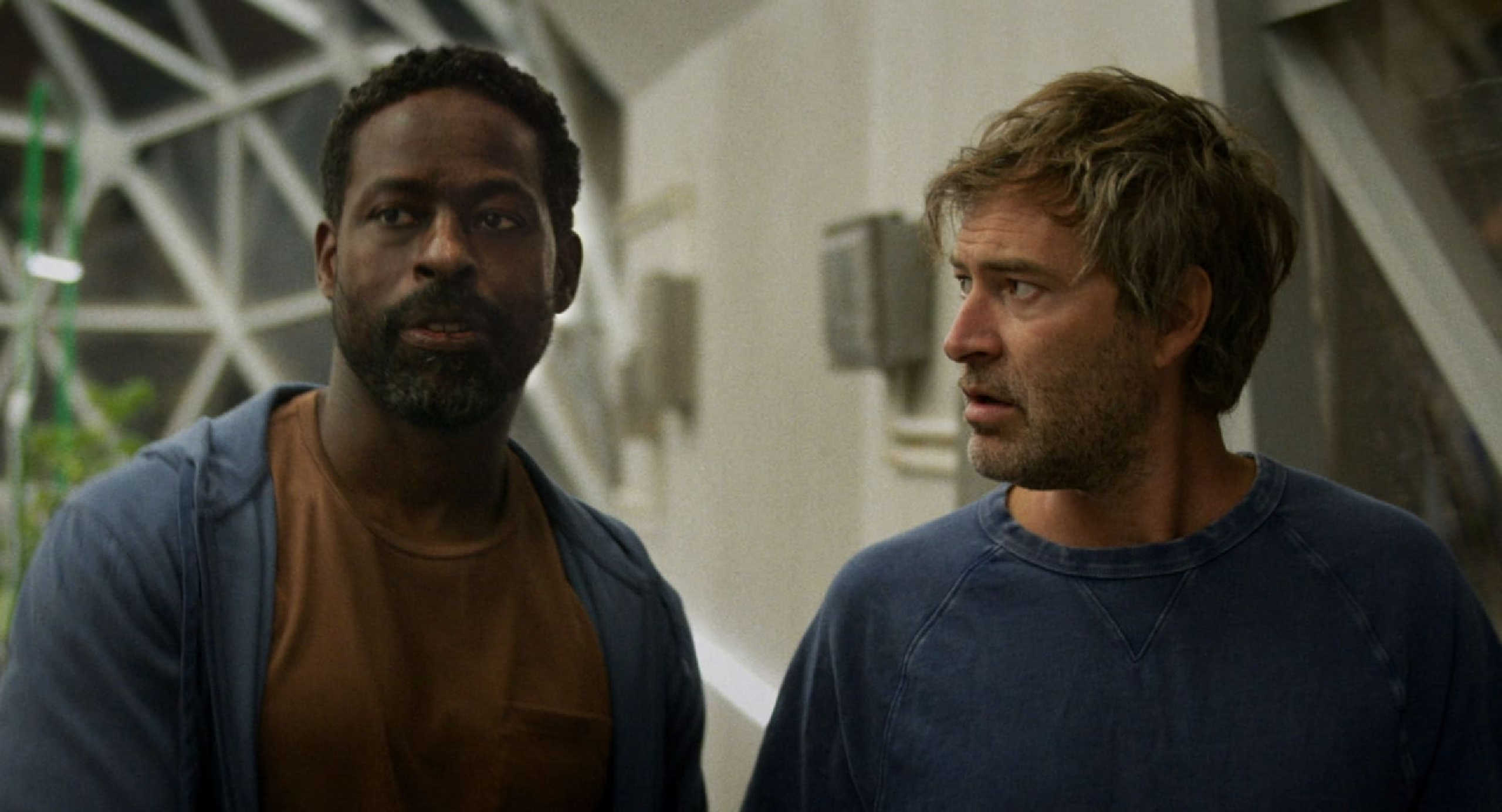In the not-too-distant future, the last two men on earth must adapt and evolve to save humanity.
Biosphere – Film Review
Published July 17, 2023

Visually, Biosphere is a treat for the eyes. The film boasts stunning cinematography, showcasing breathtaking landscapes and intricate details. Each frame is meticulously composed, demonstrating the director’s keen eye for visual storytelling. The skillful editing further enhances the overall aesthetic appeal, creating a seamless flow between scenes.
However, despite its visual prowess, Biosphere struggles to maintain a consistently engaging narrative. The film’s pacing often falters, leading to moments of tedium. While the premise holds promise, the execution falls short in captivating the audience. It never quite takes off into the realm of intrigue and captivation that one might hope for, even with its undeniable aesthetic beauty.
One of the film’s core themes revolves around adaptation and evolution. In a world where humanity is on the brink of extinction, the surviving men must confront the need to evolve in order to save their species. This exploration of the human capacity for change and resilience is thought-provoking, raising questions about our own ability to adapt in the face of adversity. However, the film’s treatment of these themes can be inconsistent. At times, it delves into profound philosophical territory, forcing viewers to contemplate the essence of humanity. Yet, these moments of depth are interspersed with shallower, more surface-level explorations, leaving the audience wanting more.
Despite its narrative shortcomings, Biosphere should be commended for its thoughtfully crafted world-building. The film presents a vision of the future that feels tangible and grounded, blending elements of science fiction with a touch of realism. The attention to detail in the production design and the meticulous construction of the post-apocalyptic setting contribute to an immersive viewing experience.
Biosphere showcases strong performances from its lead actors, with Mark Duplass and Sterling K. Brown delivering exceptional chemistry and compelling characters. The film’s visual aesthetics are undeniably striking, with stunning cinematography and skillful editing. However, the narrative fails to fully capitalize on its promising premise, resulting in a film that occasionally struggles to maintain the audience’s attention. While it explores themes of adaptation and evolution with moments of depth, it falls short in consistently engaging the viewer on a profound level. Biosphere ultimately remains a visually pleasing but somewhat underwhelming cinematic experience.
